The year 1824 was quite stressful for Russia. Relations with Georgia are becoming more complicated, the Caucasus does not want to become “peaceful”. In November, St. Petersburg was held captive by the elements - one of the most severe floods in the 19th century, which claimed human lives and hurt the poorest people. In different parts of the empire, centers of popular unrest flare up. Southern and Northern Decembrist societies are stepping up their activities in preparation for an uprising. Philosophical and political life is in full swing, the country is seething like a stormy sea. And it is no coincidence that in 1824 the public got acquainted with an amazing work, which was destined not only to outlive its creator, but also to gain immortality. We are talking about the comedy by A. S. Griboedov "Woe from Wit."
A few words about the history of creation
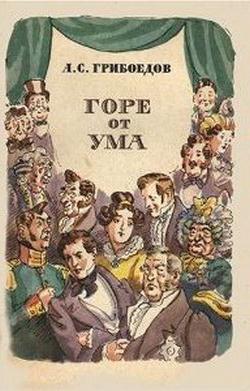
The author worked on the text for about two years, from 1822 to 1824. When Griboedov tried to print a comedy, an explicit and unconditional ban was imposed on the work by censorship. Only a few fragments saw the light, and then with large bills. However, the comedy instantly spread across St. Petersburg on the lists and stepped far beyond the capital. The text was learned by heart, the popularity of "Woe from Wit" grew day by day. No obstacles to the autocracy could prevent this. One of the main explanations for the phenomenon of mass fame and readers' love for comedy is its language and style. Literally immediately, the work went into quotes. No wonder Pushkin’s diaries contain a record that half the text will go into proverbs. He was right. Aphorisms from “Woe from Wit” not only became an integral part of the speech of the educated layers of society at that time, but even today they help us to express our thoughts in a bright, juicy, accurate and figurative manner.
Classification of aphorisms
For what purpose does the author so often resort to winged expressions? Where does the language means for their education come from? The aphorisms from Woe from Wit perform several functions in the work. Firstly, they are necessary for Griboedov to individualize the speech of the heroes. Indeed, each character in the comedy speaks his own language, and Famusov’s remarks are as different from Chatsky’s words as Molchalin’s from Skalozub. Secondly, the aphorisms from “Woe from Wit” are required by Griboedov in order to give an accurate assessment, an accurate characterization of the comedy characters. Thanks to their expressiveness and capacity, the author reveals in a few words the essence of the image, while in ordinary speech he would have to say a single sentence. Thirdly, the aphorisms from “Woe from Wit” allow you to give an emotionally-shaped assessment of the events that are mentioned in the comedy. And finally, this is a wonderful way through the expressive means of the language to show your attitude to something or someone.
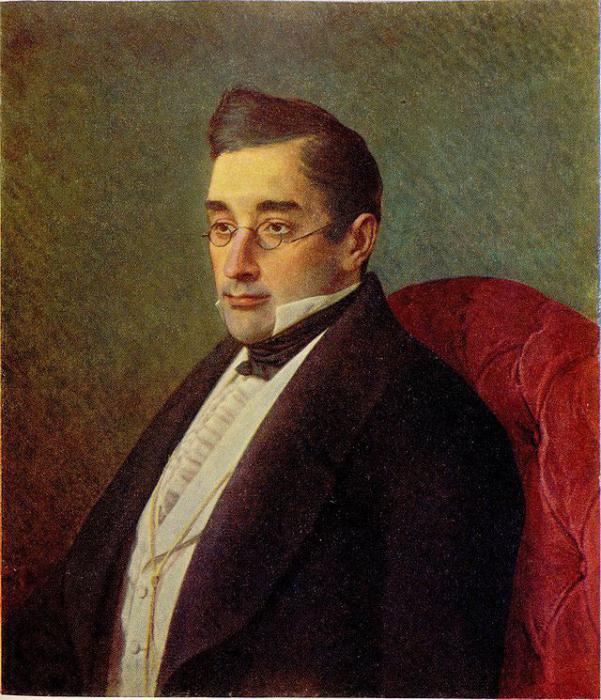
The origins of aphorisms comedy
In appearance, the aphorisms from “Woe from Wit” resemble proverbs and sayings. They are close to the works of oral folklore and the internal structure, the models of construction. Linguists who have studied the language of comedy have long drawn attention to this fact. Griboedov, who sharply criticized the dominance of a foreign in the noble culture, actively fought for the primordial culture and the Russian language to come first. Aphorisms from “Woe from Wit” prove that the playwright not only knew folklore very well, but also saw in it an invaluable source of linguistic vividness and expressiveness. In addition, the content of proverbs and sayings is familiar to all native speakers, regardless of origin and social level. Their meaning is clear to the nobleman, and the tradesman, and the merchant, and the peasant. Thus, the writer put on deep philosophical ideas in aphoristic forms, made them close and accessible to his readers from all walks of life.
Turning to the text: action 1, phenomenon 2
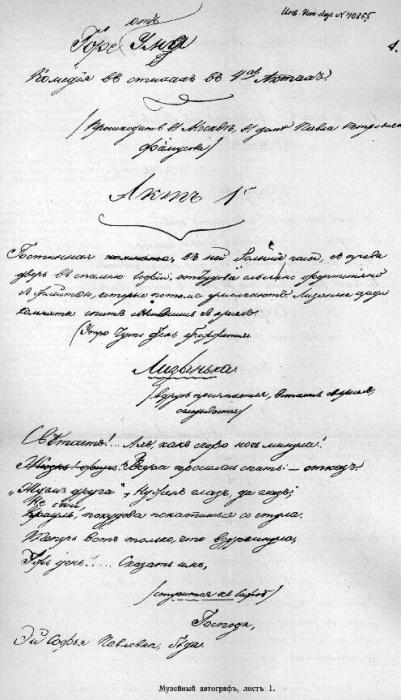
Let's try to recall some aphorisms from “Woe from Wit” by actions, analyzing them. In Act 1 of Appearance 2, Lisa, the handmaid and confidante of Sophia, utters a phrase that we now often recall in a suitable situation. This is an expression that the lordly anger and love are equally dangerous and that it is better to bypass than are poured on us. "Why is that?" - you ask. Everything is clear about anger, but why are “good feelings” dangerous and bad? Let us recall Famusov: in public, especially with his daughter, he prudently praises his virtues and "monastic modesty." And he behaves with his subordinates like a true serfman: Molchalin cruelly crackles, scolds Petrushka on what the light stands. And so someone, and Lisa is well aware of the variability of the lordly mood. Because sideways she will crawl out and the caress of Famusov, and his discontent. As applied to the present time, we can say that there is an aphorism in any situation when the boss abuses his official position. Subordinates, as a rule, are extreme and suffer.
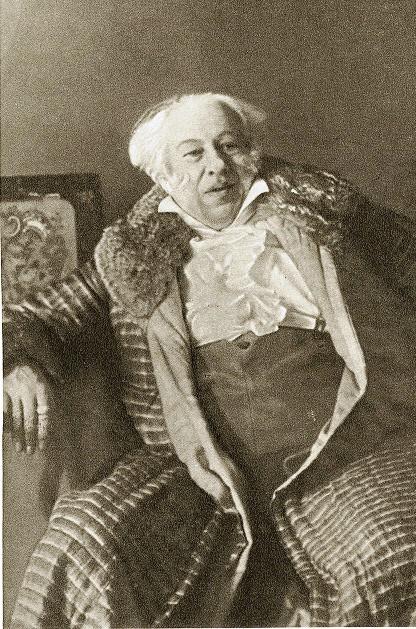
Turning to the text: action 1, phenomenon 4
Do you know what feature Griboedov brought to the work? “Woe from Wit”, the aphorisms from which we make out, can enter into synonymous and antonymic language relations. Lisa calls Famusova "pampering" and "anemone." And in the 4th appearance, he tells Sophia about himself quite the opposite: “There is no need for a different model,” when he himself, Famusov, is a worthy role model. In this phenomenon, the hero owns another replica, which reveals him as an ardent hater of foreigners and those pseudocultural trends that dictate fashion. Famusov is a representative of the old lordly Moscow, who is living according to the laws of the past century. He is dear to everything patriarchal, originating from feudal relations, the laws of serfdom. He calls the destroyers of “pockets and hearts” not only sellers in fashion stores on Kuznetsk, but also publishers of books, newspapers and magazines, in general, all who are associated with foreign countries. Resenting against “bonnets and ribbons”, “authors and muses”, Pavel Afanasevich, as a blood enemy, hates everything new that can somehow shake his usual and seemingly unshakable way of life. If you write out Griboedov’s aphorisms collected throughout the text (“Woe from Wit”), which are pronounced on behalf of Famusov, you will notice how retrograde and far from social progress the hero’s worldview is. However, we admit that many of his postulates are not without reason! And statements about the imitation of Russian nobles by everything foreign are quite applicable to our time!
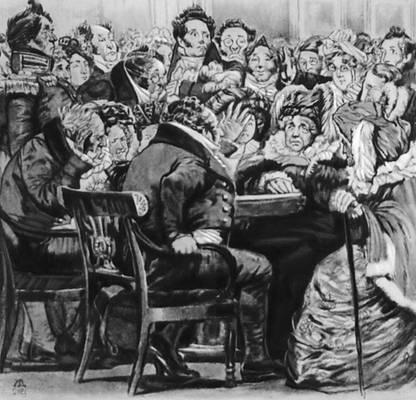
Turning to the text: action 1, phenomenon 6
In act 1, phenomenon 6, the main character of the work appears on the stage - Alexander Andreevich Chatsky. Aphorisms of the comedy “Woe from Wit”, embedded in his mouth, are associated with proverbs and sayings. The famous remark about the “smoke of the Fatherland” is synonymous with the saying that no matter how good it is everywhere, the house is still better. No less accurate is another statement, built on the basis of the proverb: "better where we are not." Or this remark: "in whom you will not find spots." You can immediately recall the saying that they are even in the sun. Or the biblical saying of Jesus that anyone who is sinless himself can throw a stone at him.
Characteristic and self-characterization
As already noted, the aphorisms from Griboedov’s “Woe from Wit” are an excellent means of the author’s characterization of heroes and at the same time act as a means of self-disclosure. What does the famous “I would be glad to serve” Chatsky talking about? The fact that he is ready to give his mind and knowledge, talents and strength to the benefit of the business. But it is he who is ready to serve the cause, and not to curry favor with someone, as was customary in the 19th century and what many sin in already in our 21st century. Careerism, official worship and, in contrast to them, conscientiousness and responsible approach to what you do, were in the time of Griboedov and are now and again encountered.
Internal conflict
Another interesting aphorism Chatsky about houses that are new, and prejudices that remain the same. A truly advanced man, far ahead of his time, he appears in monologues, where serfdom is criticized, “Fatherland Fathers”, depravity, crime and cruelty of the feudal system are brought to fresh water. Life and customs of the Moscow nobility are exposed, starting from the language, which is a monstrous mixture of “French with Nizhny Novgorod”, and ending with the persecution of education, enlightenment, freedom. And when Famusov in horror calls the hero a carbonarius who does not recognize the authorities and preaches liberties, we understand: this is the most faithful and important Griboedov’s characteristic of a hero close to him in spirit and the self-disclosure of Famusov with his infinite inertness and conservatism.
Classicism, Romanticism, Realism
Griboedov's comedy organically combines all three literary trends. The language of the work is a good example of this. Comedy was considered a low genre, and it was to be written in the language of the common people, i.e., colloquial. The playwright to a certain extent used this, achieving the effect of lively conversational speech. And in his aphorisms there are a lot of dialectisms, colloquial. However, his heroes belong to the Moscow nobility, i.e., sufficiently educated layers of society. Hence the maximum closeness of the character language to the Russian literary language. Foreign borrowings or archaisms, words from the Old Slavonic language are rarely found here. This also applies to aphorisms. Each of them is simple and understandable and decorates comedy like a gem.